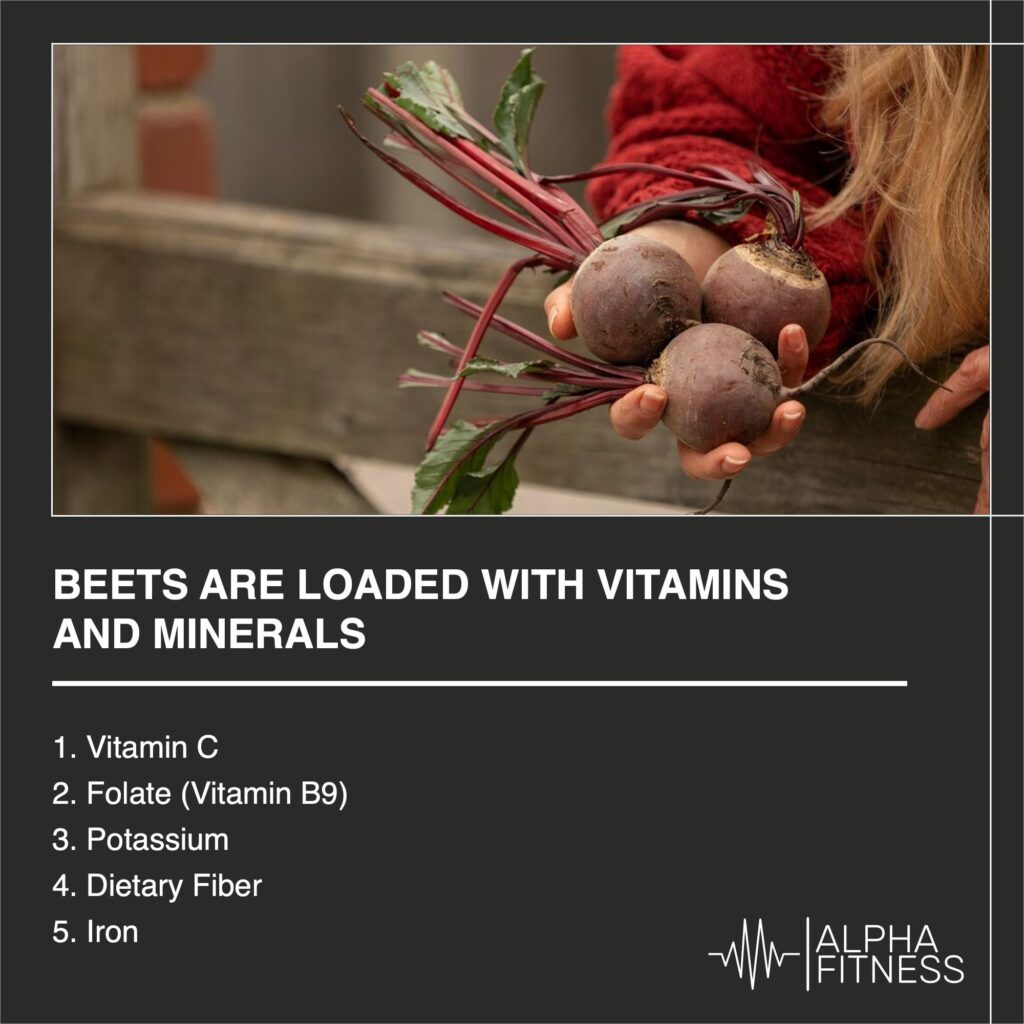
Below is a list of useful links:
- Fiber in oat bran helps reduce cholesterol
- Cocoa contains flavonoid that help in preventing blood clots
- Benefits of asparagus
- Benefits of eating seafood in summer
- Broccoli: Boost Your Energy Naturally!
Beets are indeed a nutritious and vibrant root vegetable that are packed with various vitamins, minerals, and other beneficial compounds. Here are some of the key nutrients found in beets:
Vitamin C: Beets are a good source of vitamin C, an antioxidant that supports the immune system, skin health, and wound healing.
Folate (Vitamin B9): Beets contain folate, an essential B-vitamin important for DNA synthesis and cell division. It is particularly important for pregnant women.
Potassium: Beets are rich in potassium, a mineral that helps regulate blood pressure, maintain proper muscle function, and support overall cardiovascular health.
Dietary Fiber: Beets are a good source of dietary fiber, which aids in digestion, promotes a feeling of fullness, and supports regular bowel movements.
Iron: Beets contain iron, a mineral important for the production of hemoglobin, which carries oxygen in the blood. However, the iron in beets is non-heme iron, which is less readily absorbed by the body compared to heme iron from animal sources.
Manganese: Beets provide manganese, which plays a role in various enzymatic reactions and is important for bone health, blood clotting, and metabolism.
Copper: Copper is a trace mineral found in beets that is essential for the formation of red blood cells and the absorption of iron.
Magnesium: Beets contain magnesium, which is important for muscle and nerve function, bone health, and energy metabolism.
Phosphorus: Beets provide phosphorus, a mineral that is vital for bone health, energy metabolism, and the formation of DNA.
Vitamin B6: Beets contain vitamin B6, which is involved in more than 100 enzyme reactions in the body, including those related to metabolism and the nervous system.
Antioxidants: Beets are rich in antioxidants, including betalains and other phytonutrients. These compounds can help protect cells from oxidative stress and inflammation.
Beets are also known for their potential health benefits, such as supporting heart health, reducing blood pressure, and improving exercise performance due to their nitrate content. The nitrates in beets can be converted into nitric oxide in the body, which helps relax blood vessels and increase blood flow.
Including beets in your diet can be a nutritious way to enhance your intake of vitamins, minerals, and antioxidants. You can enjoy beets in various forms, including roasted, boiled, in salads, or as a component of smoothies and juices.



